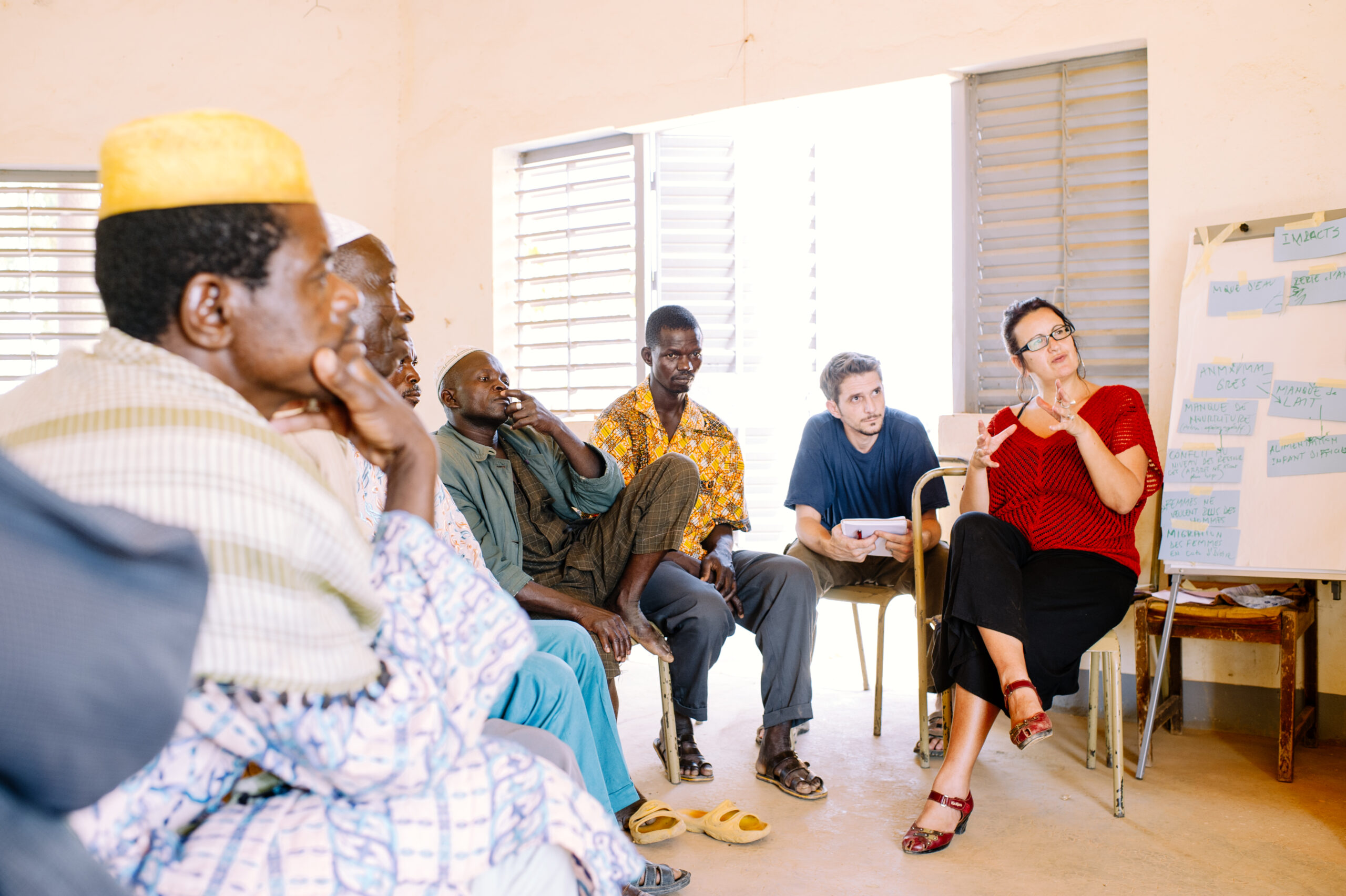When Houria Djoudi, a senior scientist at the Center for International Forestry Research, speaks about any of the number of research projects she juggles at a time, it sounds as if she’s telling a story, and likely one that will break your heart.
Whether it’s about the devastating fires that swept through her homelands in Algeria last year, burning the lands of her family, or about Burkinabe women struggling to receive fair benefits for the shea they harvest, Djoudi’s work on the social and human dimension of climate change and resilience maintains a level of compassion that the scalpel of scientific rigor often scrapes away.
Raised in North Africa’s Amazigh culture, Djoudi says that the power of language was instilled in her since her earliest years. Master poets and storytellers who pass on their skills to the next generation – known as aheddad bbwawal, “blacksmiths of the language” – were at the top of the social ladder of her home community. Encouraged by her parents, Djoudi spent long winter nights around fires with other children, each telling a tale to hone their use of words.
Her upbringing has allowed her to open her eyes and sharpen her understanding as a scientist to different perspectives when conducting her research: “There’s my own culture full of imagination, symbolic meanings and spiritual connection to nature, and the dry and expected – but non-existent – objectivity a scientist is supposed to have,” she says.
In weaving the two together, she’s developed a successful scientific career for herself, having published more than 30 peer-reviewed papers and conducted research in more than 10 countries, largely about the three topics closest to her heart: climate, trees and gender. She admits that her own bias as a woman plays into her worldview, but nevertheless, Djoudi struggles to understand why gender and social inclusion are only now receiving more attention in research and climate negotiations, when women produce the majority of the world’s food and yet still only have limited access to land or other assets and, on average, experience the challenges of climate change more severely than men.
And as for trees, well, it seems her childhood nights by the fire speak for themselves. “I owe everything to trees and the forests, as did my ancestors, who would never have survived their harsh mountainous environments without trees,” she says. “I think even though we scientifically know a lot about trees, we do not yet grasp their full mystery. Maybe most importantly, I envy them for their humble way of being generous, strong and resilient, and the fact that they have something we humans don’t have anymore: time.”




